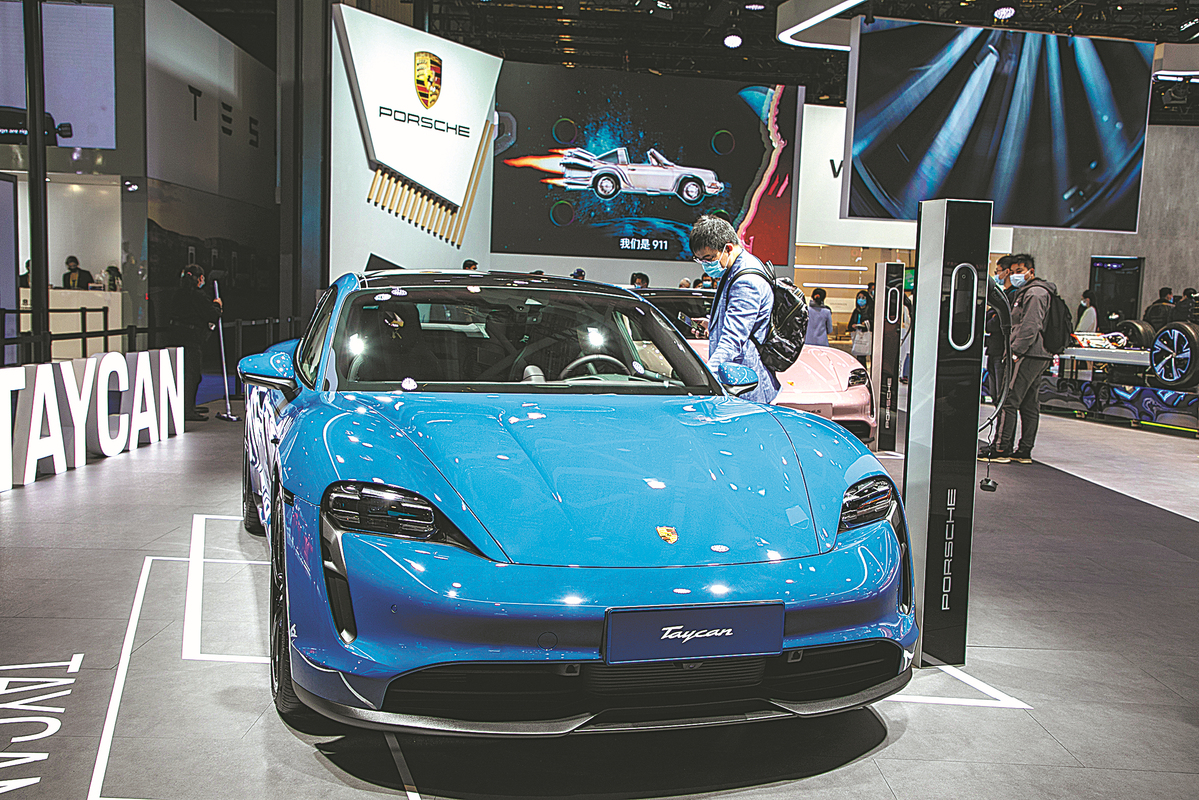Global carmakers set up China market R&D

Automakers recognize importance of tailoring vehicles to meet the needs of Chinese drivers
A growing number of international carmakers are localizing their research and development as auto markets in different regions are showing diverse features in the age of electrification and autonomous driving.
Porsche cars developed in Germany do not necessarily best meet the demands of customers in China, said Jens Puttfarcken, president and CEO of the carmaker's China operations, last week.
He said the Stuttgart-based sports car manufacturer is setting up an R&D facility in Shanghai this year. Some engineers have come to China from Germany and they will be joined by more in coming months.
"China is a very dynamic market, so dynamic that we have found some research and development work cannot be done in Germany," said Puttfarcken.
"That is because they cannot understand-and more importantly-cannot do the testing because the ecosystem and the technology are not available in Germany," he said.
Puttfarcken said the engineers in Shanghai will work on such things as autonomous driving, connectivity, electrification and charging.
He said they will work in close cooperation with the R&D team in Stuttgart so that they would integrate those solutions worked out locally in China into vehicles made in Germany.
Porsche now has 16 electric and plug-in hybrid models in China, the world's largest market for such vehicles.
Porsche said its new energy vehicles accounted for 18 percent of the carmakers' 95,000 vehicles sold last year.
Its first electric model, the Taycan, saw its deliveries reach 7,315 units, and more than 72 percent of the buyers did not own a Porsche before, said the carmaker.
Porsche has no plans yet to produce vehicles in China though, saying the production capacity in its home country is big enough, and Chinese customers adore German engineering.
US electric carmaker Tesla is to set up a design center in Beijing this year, after its R&D facility opened in Shanghai in 2021.
Cui Dongshu, secretary-general of the China Passenger Car Association, said it is becoming important for international carmakers to move closer to Chinese customers as NEVs are increasingly becoming serious options.
Last year, electric cars and plug-in hybrids accounted for 14.8 percent of total passenger vehicles sold in China. The figure is expected to reach 25 percent in 2022, said Cui.
The popularity of such vehicles has made the country one of international carmakers' largest markets. Last year, Tesla sold more than 320,000 vehicles in China, accounting for more than one-third of its global deliveries.
"It (setting up a design center) is a reasonable move if you take the China market seriously," said Yale Zhang, managing director of Shanghai-based consulting firm Automotive Foresight.
"It is difficult to come up with designs that local customers like if designers are half a world away. Meanwhile, local Chinese carmakers are rising fast as competent rivals," he said.
Tesla's design center will mark another step in its localization efforts in China, following the R&D center completed in Shanghai late last year.
The facility, the company's first outside of the United States, will grow over time to be similar in size to the one in its home country, according to Tesla. The Shanghai facility employs engineers for software, electronics, materials and charging.
"The goal of Tesla's team in China is to design, develop and produce new vehicle models and products with Chinese elements and sell them globally," Tesla said in a previous recruitment post.
Tesla has made China its major export hub since July 2021. The carmaker shipped over 160,000 vehicles from its Shanghai plant to more than 10 countries.
Starting production in late 2019, the Shanghai plant is China's first and only passenger car manufacturing facility wholly owned by an overseas carmaker.

